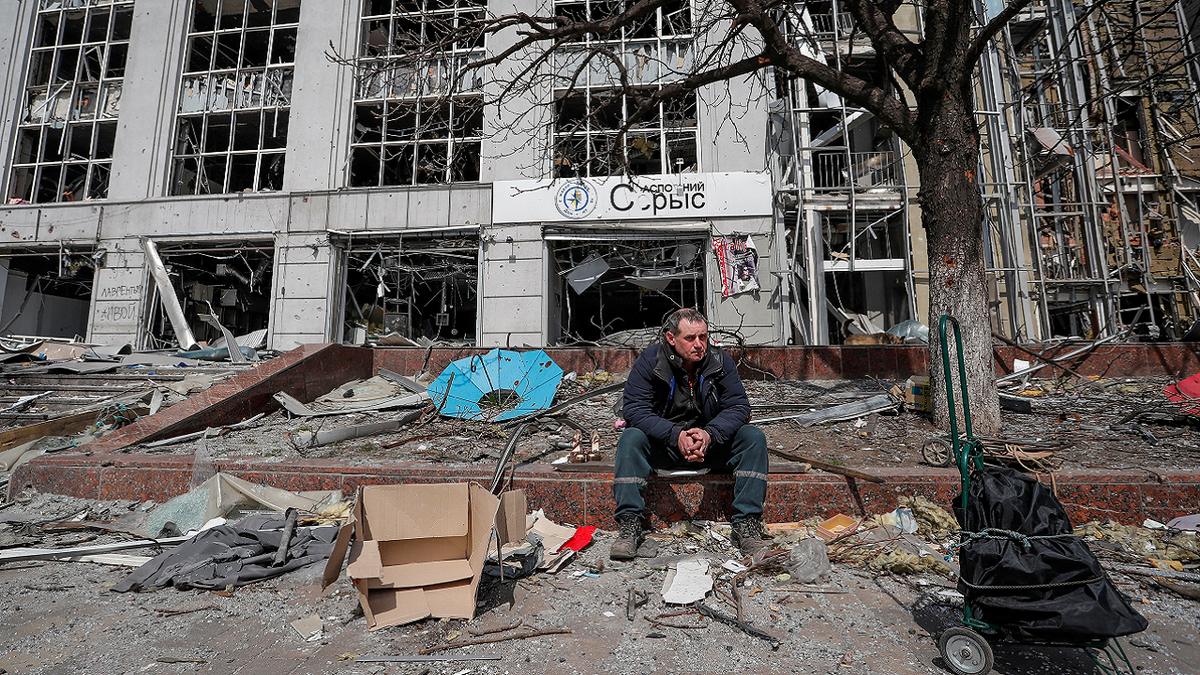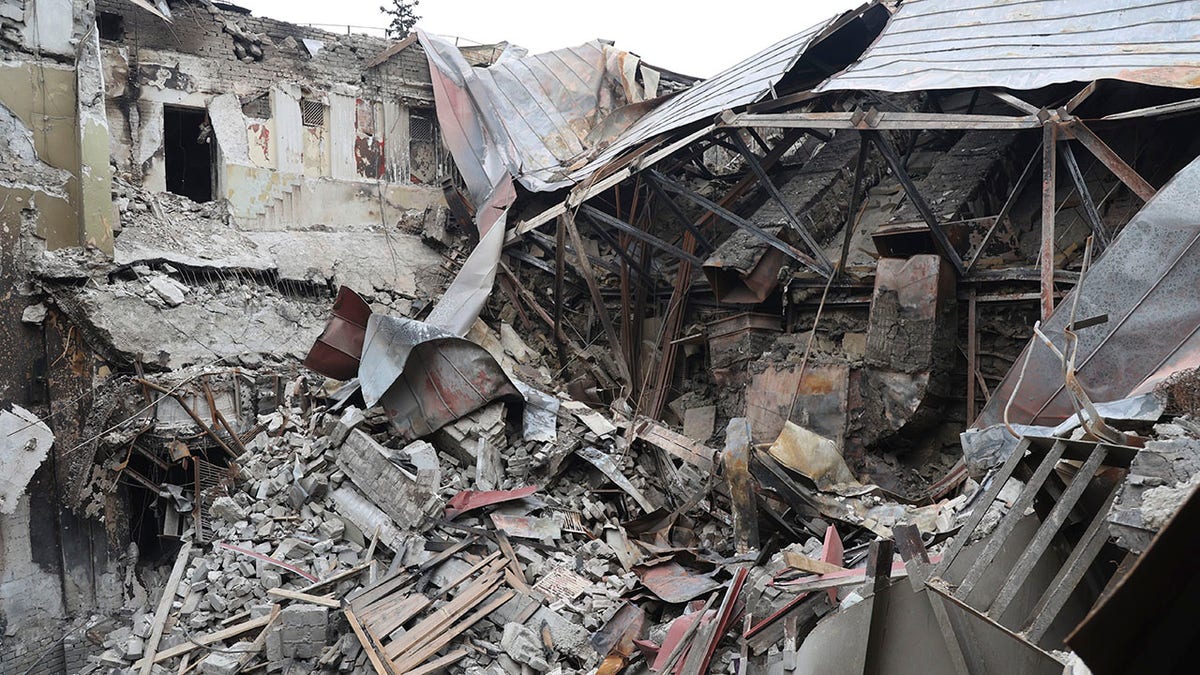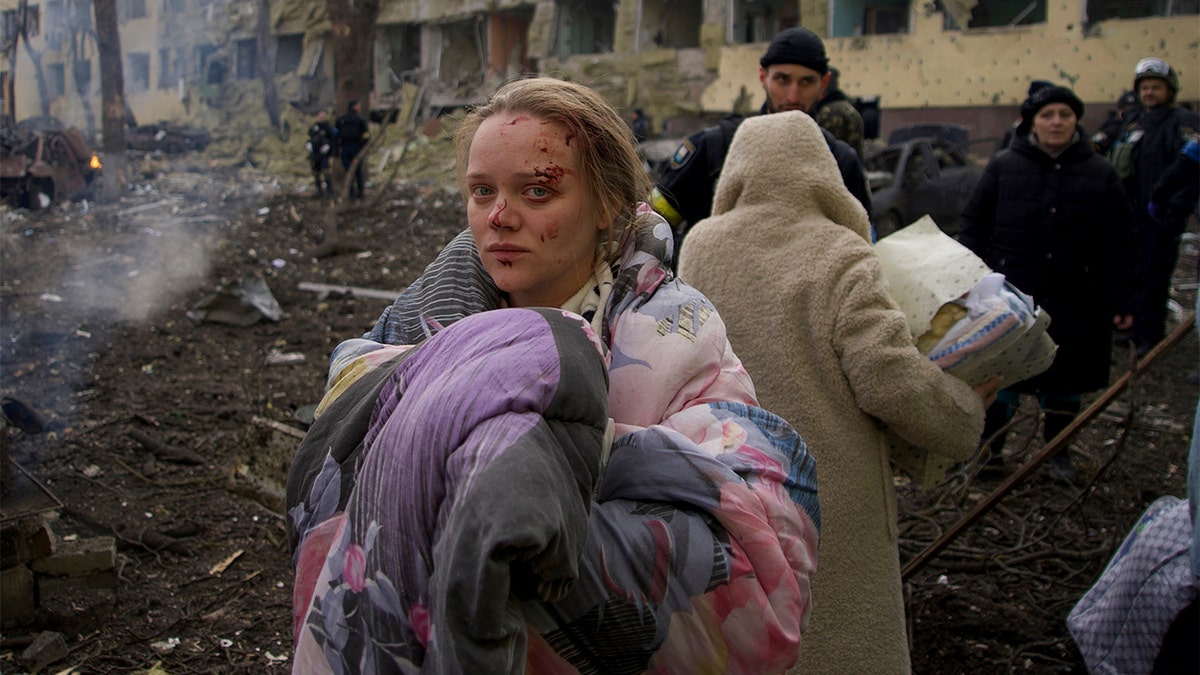Russian Human Rights Advocate believes the country's leadership 'does not take responsibility' for anything
Russian Human Rights Advocate says Russia will not be able to recover if people flee the country. Nothing seems to "work" under the current bureaucracy.
As Russia claims victory in the now destroyed Ukrainian city of Mariupol and continues to repeat its mantra that the "special military operation" is on track, one prominent Russian human rights advocate has started to dig around for the costs of this war, in human lives.
Marina Litvinovich told Fox News it's been a painstaking process: "There is no official data base anywhere. I have to collect information from the websites of regional and township administrations, chat rooms of governors, bit by bit."
She added, "The government is going to great lengths to hide the deaths."
Officially, Russia's last death toll was at 1,351 late last month. Western countries and Ukraine have put it at 15,000. Litvinovich guessed it may be somewhere around 5,000. She herself has identified with what she considered certainty just over 1,800.

A resident looks on near a building destroyed in the course of the Ukraine-Russia conflict in the southern port city of Mariupol. (REUTERS/Alexander Ermochenko TPX IMAGES OF THE DAY)
RUSSIA BANS VP KAMALA HARRIS, MARK ZUCKERBERG OTHER BIG US NAMES FROM ENTRY IN NEW SANCTIONS
What she is finding is that there's a large number of 18- and 19-year-olds among the dead, she said, even though the government insisted it's not sending conscripts into combat. Litvinovich also said she's finding "a lot of higher officers, majors, colonels who have died."
In addition, she said there's much talk about the way these soldiers died — often as sitting ducks. She said it's looked not like war but a mousetrap: "It's been written they died as heroes, but what is horrible is that many of them were just sitting in tanks when they were shelled. These are mistakes of the commanders for which people pay the price."
According to Litvinovich, the largest groups of the fallen she has identified have been young men from largely Muslim Dagestan or Buryats, indigenous people from eastern Siberia. Both regions have high birth rates and little economic opportunity.
"It turns out," she said, "that Russia is waging this war by the deaths of non-Russians." But the war for men in far-flung regions has paid well, and presumably, that's why they go at this point, those who go voluntarily, she said,
Litvinovich said she thought that for families with eight kids, where few jobs were available, the value of life diminished — as did aversion to risk. She claimed the monthly pay for many of these soldiers has been around $1,800, which by her calculations, would be nine times the average civilian salary in those key feeder regions of Dagestan and Buryatia. Families of soldiers who've died in combat have received 7 million rubles — at today's rate, about $85,000.
"Human life has no value. This is a scary story," Litvinovich said. "This is what Mother Russia should be cured of."

A view of the Mariupol theater damaged during fighting in Mariupol, in territory under the government of the Donetsk People's Republic, eastern Ukraine, April 4. (AP Photo/Alexei Alexandrov, File)
U.S. DELVIERS ‘PHOENIX GHOST’ DRONE DESIGNED BY US AIR FORCE SPECIFICALLY FOR UKRAINIAN ‘NEEDS’: DOD
In March, the Levada Center, Russia's only independent pollster, found 80% of Russians supported the war. Some questioned whether those polls were, accurate, but Levada said she felt confident they were reflective.
Fox News asked Litvinovich if she thought the mounting death toll among soldiers has changed that trend.
"It's hard for me to say. Sociologists show the opposite is true, that even more people are now in favor of war. It's very hard to believe, but that is what their numbers show. Coffins started coming in, and people on the contrary are rallying. They say, right, now we need to finish off this fascist scum," she said. "Goods cost more in stores, but it doesn't change people's attitude toward war."
She added that society has been under so much pressure that "people have drawn their picture of the world and don't want to walk away from it." Litvinovich said a lot of people have been acting in such a way that it almost seemed they were part of a cult.
Litvinovich took part in a TV show that was a long debate about whether Russians against the war should stay in the country or leave. Hundreds of thousands have escaped since late February. Many were journalists who simply couldn't do their jobs anymore without running the risk of landing in jail for up to 15 years. Litvinovich argued for Russians to stay put if possible, if they don't face the threat of imminent imprisonment.

Marianna Vishegirskaya standing outside a maternity hospital that was damaged by shelling in Mariupol, Ukraine, March 9. (AP Photo/Mstyslav Chernov, File)
CLICK HERE TO GET THE FOX NEWS APP
Litivinovich, who has spent endless hours in recent years tracking the needs and status of Russian prisoners, had her moment when she thought she'd leave too, but decided to stay. Just like the old Soviet posters used to sing out that "the motherland needs you" and your hard work, so Litvinovich thought that "the Putin project for Russia" was about to collapse, and critically thinking Russians will be needed to put the country back together. How soon she thought this moment will come, she didn't specify, but she was confident it would be just a matter of time — and that this war will be the final nail in this Kremlin's coffin.
"The state he built does not work," she insisted. "I see my task as that of a doctor who needs to treat a very sick, unhappy country. And to treat it, one has to stay here."









































